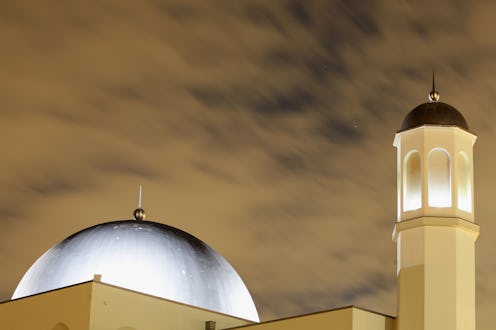News
Mosques Attacked After 'Charlie Hebdo' Killings
After three gunmen killed 12 people at satirical newspaper Charlie Hebdo, which often published cartoons lampooning Islam, several mosques were attacked in France. An explosion at a restaurant near a mosque in eastern France was feared to be a possible response to Wednesday's attack; shots were fired toward a Muslim prayer hall in southern France; and grenades were thrown into a mosque's courtyard west of Paris. Some fear these apparent revenge attacks might be symptoms of a larger group of anti-Islamic sentiments that have often pervaded France, as well as Europe as a whole.
France, which has the largest Muslim population in Europe, has been struggling, along with Germany and the United Kingdom, to deal with growing levels of anti-immigration sentiment. In France, political party Front National campaigns with an anti-immigration and anti-EU stance and proposes the idea that Islam poses a threat to French values. Last year, Front National won 24 of France's 74 parliamentary seats. In Birmingham, England, police say anti-Muslim hate crimes are on the rise. An 82-year-old man was stabbed as he left a mosque in April 2013, and a mosque was firebombed after a soldier was killed by two British Muslims a month later.
As fear over the values of Islam grow in the wake of terrorist attacks believed to be committed in the name of the religion, there is the chance that anti-Islamic reactions will increase.
Owen Jones of The Guardian argues that revenge is not the path to take and urged France to not allow itself to be overtaken by Islamophobia. When Norway was reeling from the loss of its citizens at the hands of Breivik, its response was "more democracy, more openness, and more humanity," prime minister Jens Stoltenberg declared. France, Jones argued, must follow suit. If not, it only gives fundamentalist terrorists exactly what they want. He writes:
This incident should rightfully horrify, but it will now undoubtedly fuel an already ascendant far-right. The consequences? More anti-Muslim hatred, more disillusionment among already marginalised young Muslims, more potential recruits for extremist groups. There is a choice, of course. Norway’s enlightened response could be a model elsewhere in Europe too. It would be the last thing the attackers would want us to do.
The director of the International Center for the Study of Radicalization at King’s College London told The New York Times that this is a "dangerous moment" for Europe as the anti-immigration sentiments feed far-right political parties. As terrorist attacks make people feel less safe and more resentful, support for a tougher response increases. A German political party, Patriotic Europeans Against the Islamisation of the West (PEGIDA), said it has been warning of Islamic attacks like this. Its rallies have become more and more popular, but Thomas de Maiziere, the interior minister of Germany, has urged people to stay calm and recognize that there's a large difference between Islam itself and the extremists who use the religion to rationalize terror attacks.
Ilhem Bonik, a Muslim who has lived in Paris for 14 years, told The New York Times that the killings at Charlie Hebdo are not what Islam stands for. Many Muslims have taken to Twitter, using the hashtag #NotInMyName to stand against the attacks.
